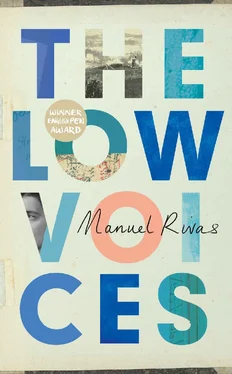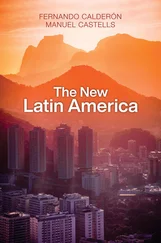There was a lot of controversy at the time about the first law to deal with the voluntary termination of pregnancy. The so-called abortion law. Up until then, women could go to prison if they aborted. During that period of transition, debate wasn’t possible. Only the burning of words and anathemas.
‘Don’t even think about abortion,’ said Cribeiro, divining our thoughts.
Yes, if we were the BBC, abortion would be the number one item on the agenda.
Cribeiro accepted with one condition:
‘You have to begin the bulletin with three opinions, each with the same margin of time. A representative of the Church who is against the law. A woman in favour. And then a man or a woman, the opinion of a normal person.’
That seemed simple enough. Especially in Santiago. The cameraman and I emerged onto Obradoiro Square and soon got a statement from Canon Precedo. It wasn’t difficult locating a feminist voice either. In Santiago, these two souls — the reactionary and the liberal — have lived side by side for ages, like the scallop shell that can be a symbol of Mars or Venus. All we needed now was the ‘normal person’.
At the time, we still worked with celluloid. Connected by the microphone cable, the cameraman and I constituted a hybrid species of futuristic archaeology, moving slowly but eagerly. The cameraman knew the city better than me. I asked him:
‘How about that one there?’
‘That one? He’s more stubborn than a mule.’
‘What about that one over there?’
‘He could eat the stones of the cathedral!’
An hour and a half later, with the deadline for going back to the studio drawing closer, I realised how difficult it can be to find a normal person when you need one.
We were about to give up when I saw her.
We were in the middle of Toural Square, next to the fountain, and she entered through the side. As soon as she came in, she saw us. And we saw her. The cameraman looked at me. And nodded. This was the one. She was carrying bags in both her hands, which hindered her movements. We cut her off diagonally. She tried to escape down an alley, but the cable enabled us to perform an enveloping manoeuvre that prevented her from leaving the arches.
There she was, opposite me. Panting in amazement. A normal person.
‘Madam,’ I asked straight away, ‘what is your opinion about the law for the termination of pregnancy, the so-called abortion law?’
I was afraid she might scream. Cry out for help. But she calmed down and fixed me with a stare:
‘Listen, boy. I’m not from around here, I just came to buy some shoes.’
We raced to the studio to open the news. She was the one. We had her at last. A normal person.
22. The Anarchist Woman’s Smile
IT WAS A beautiful Sunday. María had asked me to go with her to a coastal town where there was going to be a painting competition out in the open. On the coach, she sat next to the window. Everything outside produced light. She also had a little something for that Sunday light. The ferment of colours in her cloth-lined wicker basket, which contained brushes, oils, jars, and the porcelain bowls she used for mixing. The participants had to choose a section of the local landscape. I remember María painted some seaside houses, one of which had a tavern on the ground floor. It was an architecture in retreat, but which re-emerged that day with the light, the desire for style of naval colours, the tavern door like a songful, mysterious mouth. I wandered about, observing and comparing. My eyes didn’t lie, couldn’t lie. In María’s painting, the reconstruction of the memory of colours, there was something I couldn’t find anywhere else. When it came time to announce the winners, in the evening, in the town hall, María’s painting was awarded the prize of honour.
Our return was silent and bitter. In theory, this prize of honour was the top award. But the ones that paid money were the other awards, which went to local painters. On top of that, the recipient of the prize of honour was obliged to donate their painting to the organisers. So we headed home with the sense of having been honourably done over. María with her basket of colours and painful smile. I think this was a mark of the house. My father gave voice to destiny, as if the stones already knew: ‘The devil lurks behind the cross!’
For María, it was always important to earn a living by her own means. From when she was young, she gave classes in summer to small children in Castro. From a young age, while studying for her baccalaureate, she formed part of the resistance to Franco. She was active, very involved, with left-wing clandestine groups such as Red Flag. One Sunday, my mother woke me up in a fluster. She had opened a trapdoor in the henhouse and come across a pile of pamphlets. I lied. Said, ‘They’re mine.’ This calmed her down. She was always more afraid for María. She had the feeling María was ahead of her time. And she was right. María distanced herself from Marxist groups, but not from the fight, when she understood that the idea of changing the world should go hand in hand with a new way of life. She lived life as an anarchist. She left to study philology in Santiago, always in search of work to keep herself going. Nothing was beneath her. She was a great fan of arts and crafts. She made her own clothes, her own furniture. She fixed any problems in the places where she lived, with her box of melancholic tools, which all looked like unique specimens, the survivors of old workshops. She would go out foraging in orchards and by the sea. She was a gleaner of the kind painted by Millet, always searching for something useful in what had been hidden or abandoned. There were shop windows in front of which she would always stop to gaze: bookshops and ironmongeries. Groceries as well, where she would gather boxes to make bookshelves for her library. In her library, grammars sat alongside a DIY manual, and The Book of Good Love by the Archpriest of Hita rubbed shoulders with a book she held in high esteem: Anarchist Aesthetics by André Reszler. She recycled everything. In her ideas, she devised her own garden, her own company, with people like Kropotkin, Henry David Thoreau, Herman Hesse, and the texts of the Situationist International and the movement Provo (‘provoke’), impelled by the Kabouters (anarchist ‘gnomes’). She fed like the woodcock, the wood’s guardian: she became vegetarian. She used to joke, ‘Anarchist? Have you any idea how difficult that is!’
Her other passion was words. The deambulation of words. Their metamorphoses. Their ways of re-existing. She went after them, as she used to go looking for lucky ladybirds or glow-worms in the nocturnal walls of Castro as a child. She carried words in her pockets. On bits of paper scattered about the house like autumn leaves. In notebooks she herself had bound. And, if she had nothing else, then the palms of her hands, her arms, her skin would act as parchment. When she was out of work, she did translations from English and French for the dubbing of films. A job she shared with Lois Pereiro. Sometimes, the two of them would laugh out loud when working on the dubbing of a porno film. ‘Mm, mm, like that, like that, mm, mm, yes, yes, no, yes, I’m coming, not coming, coming, yes, yes, yes!’ The technique involved turning moans into words. Because they were paid by the word, including monosyllables (I think now, with impatient capitalism, they only pay for words with a stress on the antepenultimate syllable). It was occasional work that didn’t last long. Where she worked for longer, with the devotion of a gleaner of words, was on the team that compiled the Galician Academy’s dictionary.

Читать дальше













